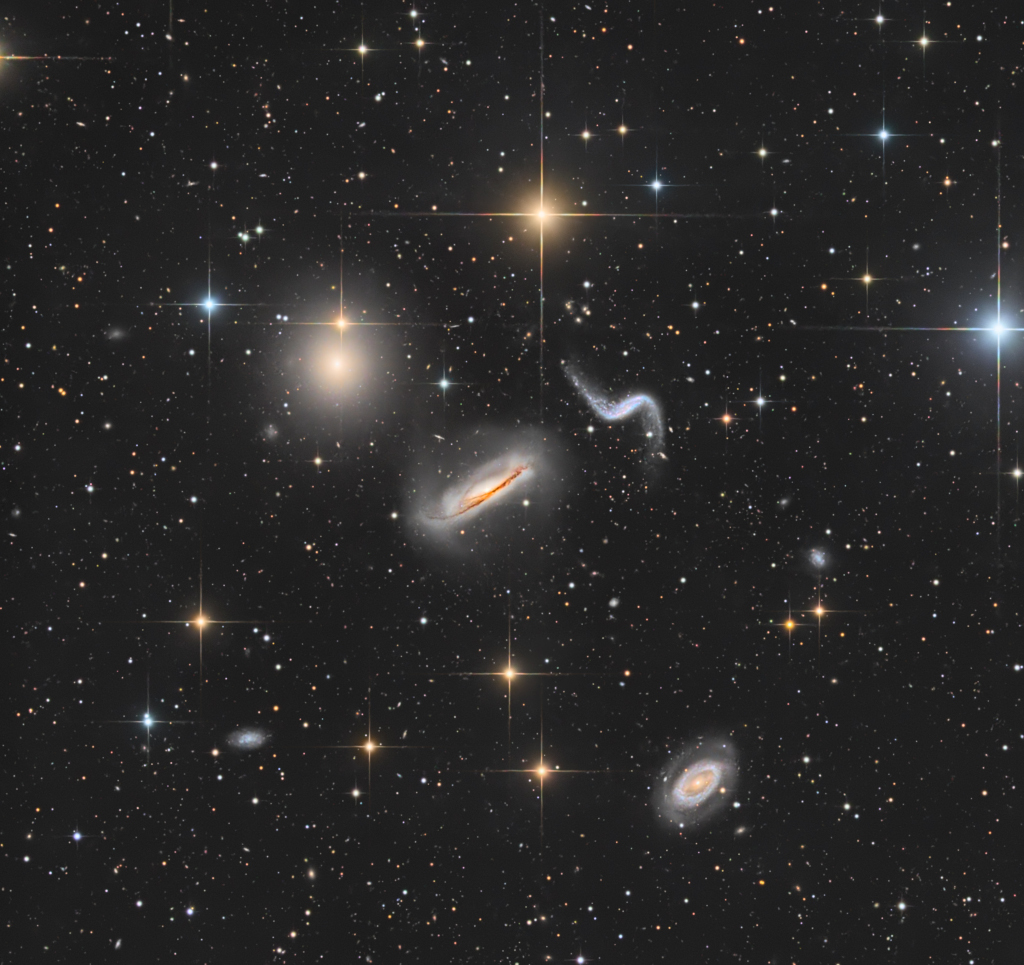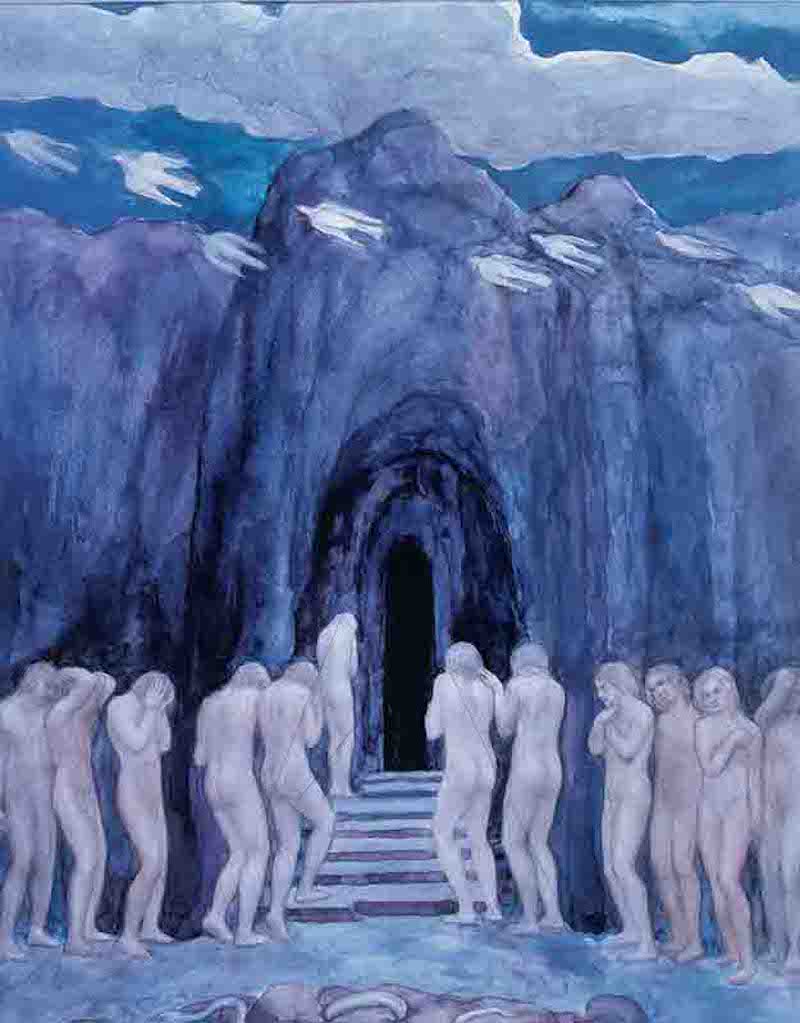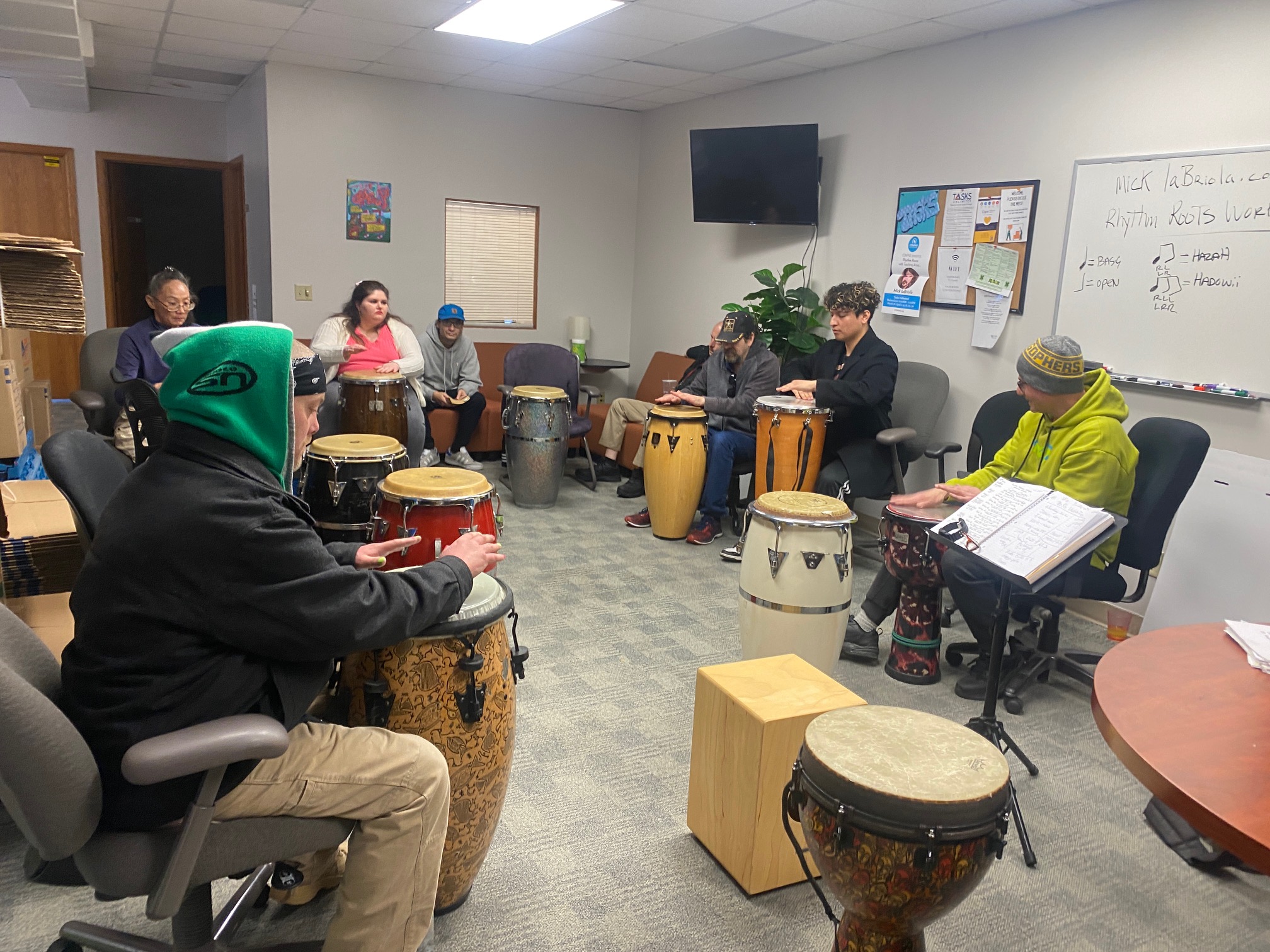Blog
Scanning the skies for galaxies, Canadian astronomer Paul Hickson and colleagues identified some 100 compact groups of galaxies, now appropriately called Hickson Compact Groups. The four prominent galaxies seen in this intriguing telescopic skyscape are one such group, Hickson 44. The galaxy group is about 100 million light-years distant, far beyond the spiky foreground Milky Way stars, toward the constellation Leo. The two spiral galaxies in the center of the image are edge-on NGC 3190 with its distinctive, warped dust lanes, and S-shaped NGC 3187. Along with the bright elliptical, NGC 3193 (above and left) they are also known as Arp 316. The spiral toward the lower right corner is NGC 3185, the 4th member of the Hickson group. Like other galaxies in Hickson groups, these show signs of distortion and enhanced star formation, evidence of a gravitational tug of war that will eventually result in galaxy mergers on a cosmic timescale. The merger process is now understood to be a normal part of the evolution of galaxies, including our own Milky Way. For scale, NGC 3190 is about 75,000 light-years across at the estimated distance of Hickson 44. 100mly

Alfredo “Chocolate” Armenteros (4 April 1928 – 6 January 2016) was a Cuban trumpeter. He played with artists such as Arsenio Rodríguez, Generoso Jiménez, Chico O’Farrill, Orchestra Harlow, Eddie Palmieri, Cachao and Sonora Matancera. Due to his characteristic approach to Afro-Cuban trumpet playing as well as his extensive recording career, several monographs have been written on his music.
more...Elmer Bernstein (April 4, 1922 – August 18, 2004) was an American composer and conductor. In a career that spanned over five decades, he composed “some of the most recognizable and memorable themes in Hollywood history”, including over 150 original film scores, as well as scores for nearly 80 television productions. For his work, he received an Academy Award for Thoroughly Modern Millie (1967) and a Primetime Emmy Award. He also received seven Golden Globe Awards, five Grammy Awards, and two Tony Award nominations.
He composed and arranged scores for over 100 film scores, including Sudden Fear(1952), The Man with the Golden Arm (1955), The Ten Commandments (1956), Sweet Smell of Success (1957), The Magnificent Seven (1960), To Kill a Mockingbird (1962), The World of Henry Orient (1964), The Great Escape (1963), Hud (1963), Thoroughly Modern Millie (1967), True Grit (1969), My Left Foot (1989), The Grifters (1990), Cape Fear (1991), Twilight (1998), and Far from Heaven (2002). He is known for his work on the comedic films Animal House (1978), Meatballs (1979), Airplane! (1980), The Blues Brothers (1980), Stripes (1981), Trading Places (1983), Ghostbusters (1984), Spies Like Us (1985), and Three Amigos (1986).
He also worked on frequent collaborations with directors Martin Scorsese, Robert Mulligan, John Landis, Ivan Reitman, John Sturges, Bill Duke, George Roy Hill, Richard Fleischer, John Frankenheimer, and Henry Hathaway.
more...Hugh Ramapolo Masekela (4 April 1939 – 23 January 2018) was a South African trumpeter, flugelhornist, cornetist, singer and composer who was described as “the father of South African jazz“. Masekela was known for his jazz compositions and for writing well-known anti-apartheid songs such as “Soweto Blues” and “Bring Him Back Home“. He also had a number-one US pop hit in 1968 with his version of “Grazing in the Grass“.
more...McKinley Morganfield (April 4, 1913 – April 30, 1983), better known as Muddy Waters was an American blues singer-songwriter and musician who was an important figure in the post-World War II blues scene, and is often cited as the “father of modern Chicago blues“. His style of playing has been described as “raining down Deltabeatitude”.
Muddy Waters grew up on Stovall Plantation near Clarksdale, Mississippi, and by age 17 was playing the guitar and the harmonica, copying local blues artists Son House and Robert Johnson. In 1941, Alan Lomax and Professor John W. Work III of Fisk University recorded him in Mississippi for the Library of Congress. In 1943, he moved to Chicago to become a full-time professional musician. In 1946, he recorded his first records for Columbia Records and then for Aristocrat Records, a newly formed label run by brothers Leonard and Phil Chess.
more...Harmonic tension between the E major and F major chords is prevalent in the Soleá form, causing both harmonic and tension and resolve throughout a performance. A Soleá may include the escobilla section, where the beat shifts to a feeling of three (1,2,3, 4,5,6, 7,8,9, 10,11,12).
After a long night of dancing and singing lively toques, guitarists may play the Soleá as a melancholy conclusion. When the drinks are finished and there’s a stillness in the air, and the sun is on the verge of rising…play the Soleá.
more...
IC 2177 is a region of nebulosity that lies along the border between the constellations Monoceros and Canis Major. It is a roughly circular H II regioncentered on the Be star HD 53367. This nebula was discovered by Welsh amateur astronomer Isaac Roberts and was described by him as “pretty bright, extremely large, irregularly round, very diffuse.”
The name Seagull Nebula is sometimes applied by amateur astronomers to this emission region, although it more properly includes the neighboring regions of star clusters, dust clouds and reflection nebulae. This latter region includes the open clusters NGC 2335 and NGC 2343.

April 3rd 1953 Craig Taubman, Jewish-American singer (Friday Night Live), born in Millington, Tennessee
Craig Taubman is a singer and composer, known both for his Jewish liturgical music for the synagogue and his popular contemporary music.
Taubman studied music at UCLA and moved to Israel and lived there for almost 3 years, where he played in several bands and ensembles. Later, he wrote a children’s album that led to a contract for music writing for the Disney channel. In 1997 Taubman was asked by Rabbi David Wolpe from the Conservative synagogue ‘Sinai Temple‘ in Los Angeles to write modern music for the Friday night prayer. “Friday Night Live” was performed in the synagogue once a month at first, and then every two weeks, and had a musical setting, with guitars, clarinets, keyboards, and several singers. Those events were popular among young audiences and were attended by more than 1500 people at a time. The songs that Taubman wrote for this setting were gathered in an album by the name “Friday Night Live”.
Taubman was also the producer of ‘Celebrate Hip-Hop’ a compilation of Jewish hip-hop worldwide that includes tracks by Mook E., Solomon & Socalled, Etan G., and the Hip Hop Hoodíos.
more...Homesick James (April 30, 1910 – December 13, 2006) was an American blues musician known for his mastery of the slide guitar. He worked with his cousin, Elmore James, and with Sonny Boy Williamson II.
more...Walter Gabriel Pichon (April 3, 1906 – February 25, 1967) professionally known as Fats Pichon, was an American jazz pianist, singer, bandleader, and songwriter. Pichon was born and raised in New Orleans, Louisiana, and began playing piano in his childhood. He also played baritone horn in brass bands in his youth, already a professional musician by 1920.
more...James Harrell McGriff (April 3, 1936 – May 24, 2008) was an American hard bopand soul-jazz organist and organ trio bandleader. McGriff formed a combo that played around Philadelphia and often featured tenor saxophonist Charles Earland (who soon switched permanently to organ, and became one of the instrument’s renowned performers). During this time, McGriff also accompanied such artists as Don Gardner, Arthur Prysock, Candido and Carmen McRae, who came through town for local club dates.
more...
Rocco Scott LaFaro (April 3, 1936 – July 6, 1961) was an American jazz double bassist known for his work with the Bill Evans Trio. LaFaro broke new ground on the instrument, developing a countermelodic style of accompaniment rather than playing traditional walking basslines, as well as virtuosity that was practically unmatched by any of his contemporaries. Despite his short career and death at the age of 25, he remains one of the most influential jazz bassists, and was ranked number 16 on Bass Playermagazine’s top 100 bass players of all time. LaFaro died in an automobile accident on July 6, 1961, in Seneca, New York, on U.S. Route 20 between Geneva and Canandaigua, four days after accompanying Stan Getz at the Newport Jazz Festival.
more...Teaching a Rhythm Roots Workshop Residency at Tasks Unlimited Wednesday April 2nd 2025 11am-1pm. Second class in a Wednesday series of 6 sessions. Exploring rhythms of Egypt, Algeria, Bulgaria, Dominican Republic, Spain and more. Culminating into a Performance on April 30th. Tasks Unlimited provides supported employment, housing and recovery services for people with mental illness so that they achieve a full life with the rights and responsibilities of adults in our society.

more...
More Posts
- Bill Frisell
- Wilson Pickett
- José Mangual
- Daily Roots with Dennis Brown
- Flamenco Fridays with Ukrainian Guitarist Estas Tonne
- Happy St Paddys Day 2022
- Cozmos NGC 5129
- Paul Kantner
- Zoletta Lynn Taylor
- Paul Horn
- Nat King Cole
- Lovie Lee
- World Music DrymbaDadzyga
- Daily Roots Mortimer
- Cozmos M16
- Jerry Jeff Walker
- Jeter Thompson
- Tommy Flanagan
- Son Bonds
- World Music Trio Mandili


